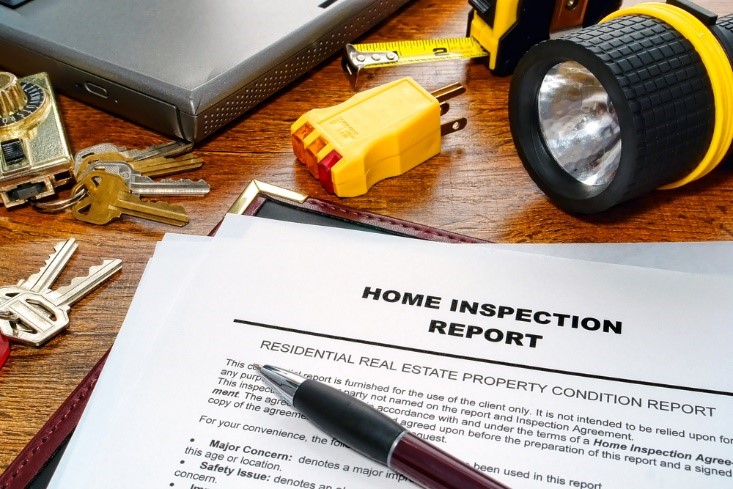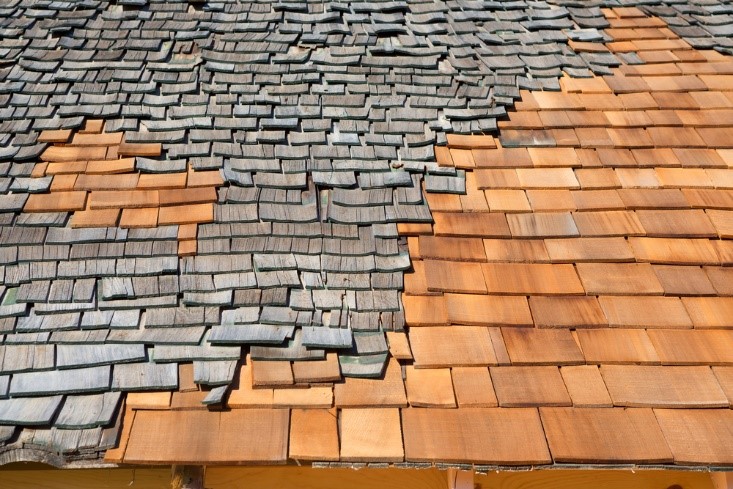The Most Common Problems Found in Home Inspections
Tags: Home Inspection
 Most prospective homeowners get swept up in the magic and fun of buying a property. Their “must-have” list includes things like granite countertops, real wood flooring, crown moldings and a large, well-landscaped yard, and when they visit a potential property, they tend to fall in love with how it looks before truly understanding the house underneath the fancy finishings.
Most prospective homeowners get swept up in the magic and fun of buying a property. Their “must-have” list includes things like granite countertops, real wood flooring, crown moldings and a large, well-landscaped yard, and when they visit a potential property, they tend to fall in love with how it looks before truly understanding the house underneath the fancy finishings.
Once you make an offer on a house, you will be given what’s called an “inspection window,” during which time you are allowed to bring professionals onto the property to search out potential flaws. However, by this time, too many prospective homeowners have fallen in love with the home, and thus, they hardly glance at the inspection reports before continuing on with the house purchase. Unfortunately, this frequently results in homebuyers paying too much for a property with more than its fair share of issues.
You should be different during your upcoming home purchase. Instead of ignoring the inspection reports, you can know what you are looking at by learning in advance the most common problems found during the inspection process — to include what you can fix and what you should make you cancel the sale.
Insufficient Maintenance
“Insufficient maintenance” is a catch-all term used to explain that the previous homeowners simply weren’t good at taking care of their property. It might contain issues like a cracked driveway, holes in walls or worn carpeting. Usually, this isn’t a deal-breaker; it just means you’ll be paying less and have to do more after you move in. Upkeep problems are common with houses that have been used as rentals, so most homeowners in high-rental areas like Los Angeles have drywall repair experts on speed dial.
Faulty Plumbing
The largest and most important system in your home, the plumbing should be close to perfect. Issues like poor water pressure can be fixed, but any signs of cracks or leaks in the pipes should send you elsewhere, stat. Water damage is not something to trifle with; it will be an immense financial burden to revamp your plumbing, so this isn’t a good problem to brush off.
Faulty Wiring
Second only to plumbing, the electrical system is also incredibly important to the proper function of your home, and because it is so complex, things often go wrong. Inspections can reveal issues like aluminum wiring, amperage mismatches, missing wire nuts and open junction boxes. Because faulty wiring poses not just a threat to your home but also to you and anyone else inside, you shouldn’t tolerate electrical issues.
Poor Drainage
Everyone wants the house on top of the hill, but a house on the hill’s slope isn’t ideal. That’s because any house on a grade can have drainage issues, where precipitation and other water runoff leads directly to the foundation. If the grade is minor, it doesn’t cost much to fix this, but it will likely require new landscaping efforts.
Faulty Gutters
Perhaps the least concerning issue on this list, faulty gutters in your home inspection shouldn’t be much of a red flag. Gutters can get clogged or bent, allowing water to pool against your roof and cause damage. However, it’s easy enough to clean out the gutters, fit them with guards or replace them entirely, and if you prioritize this repair — or ask the sellers to fix it for you — then you are golden.
 Roof Issues
Roof Issues
You can usually tell when a house has a roof well past its prime, and you should avoid being attracted to these properties. Reroofing isn’t the most expensive or most grueling repair, but it is one that you shouldn’t have to shoulder. If your inspection pulls up signs of missing or cracked shingles or flashings, you should think long and hard about whether that house is right for you.
Foundation Flaws
You probably already know that a foundation issue is one you don’t want to tackle. For some reason, foundation trouble is the one thing homeowners recognize as a definite no-go. While not all foundation problems are the same, it’s safe to say that you should stick to your gut reaction: Foundation flaws are not for you.
Poor Ventilation
Usually, homeowners worry more about too much draftiness than too little ventilation, but lacking airflow in your home will likely result in an accumulation of moisture, which in turn brings forth water damage and mold. You can usually fix this issue by installing fans in areas prone to moisture — i.e. bathrooms and kitchens — but you should take your inspector’s advice in this case.
Typically, it’s hard to make blanket statements regarding home inspection reports; all homes are unique, and they come with problems you may or may not be prepared to face. It’s impossible to list all conceivable issues you might find on a home inspection report, so as long as you know the most common ones — and the ones you should immediately back away from — you should buy a house that’s perfect for you.